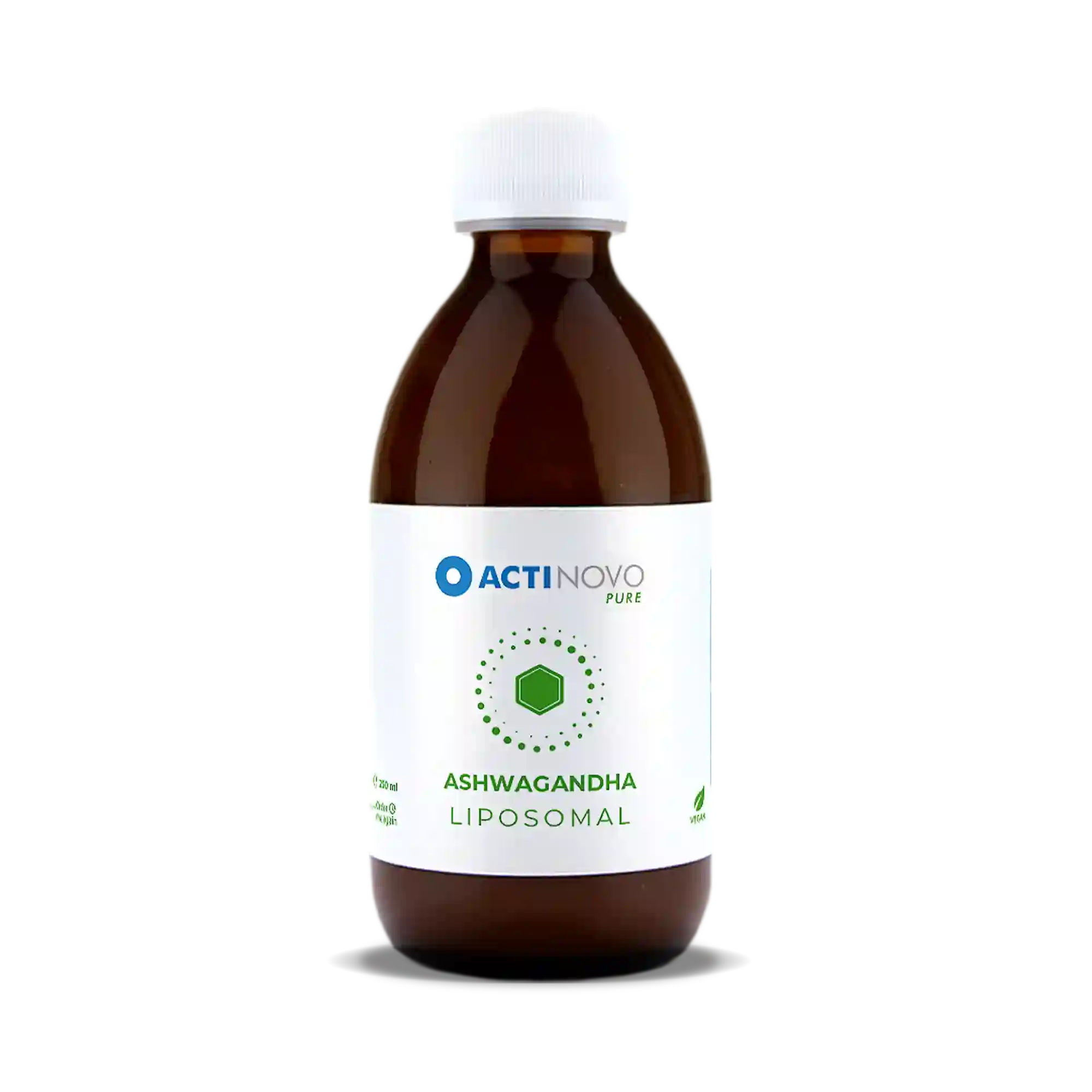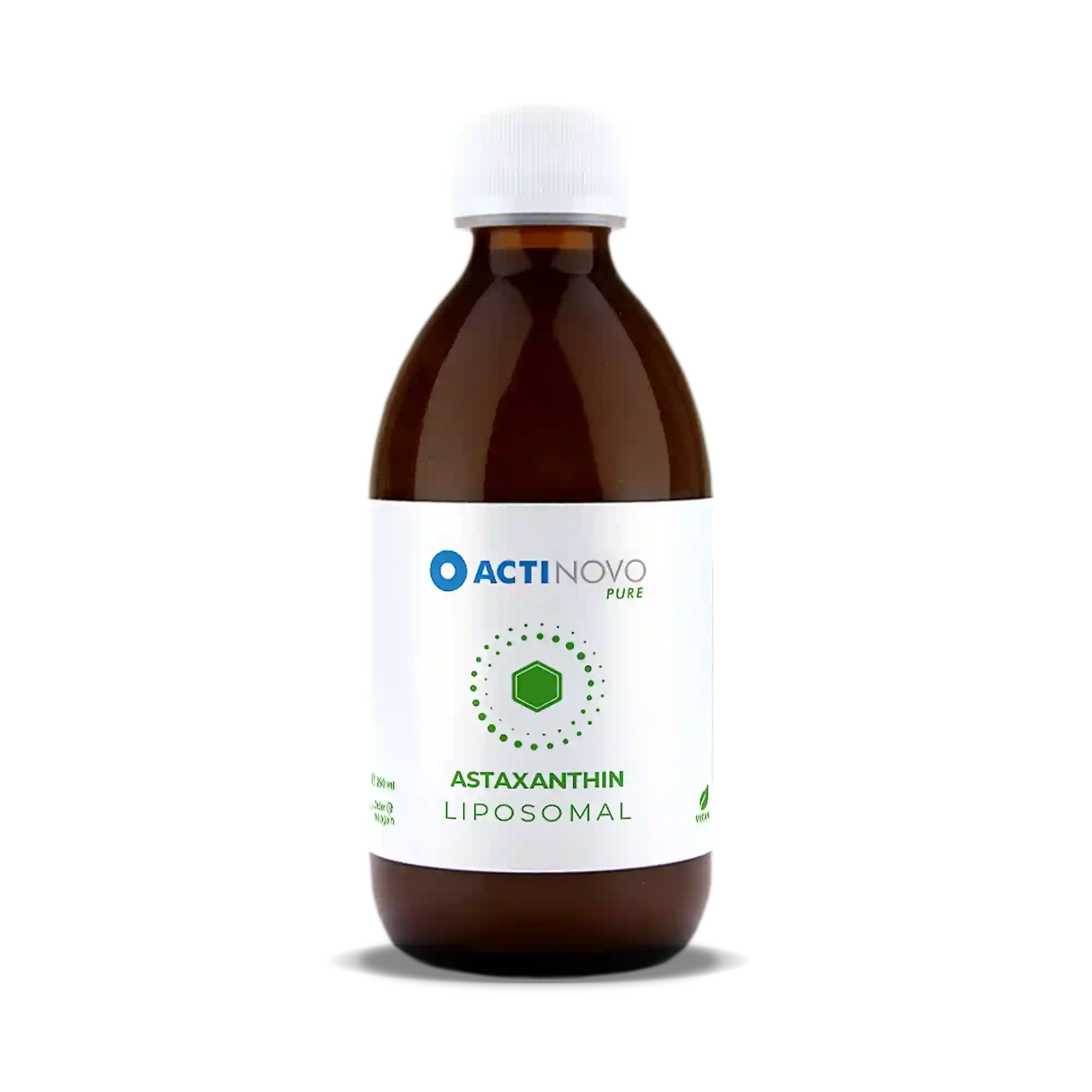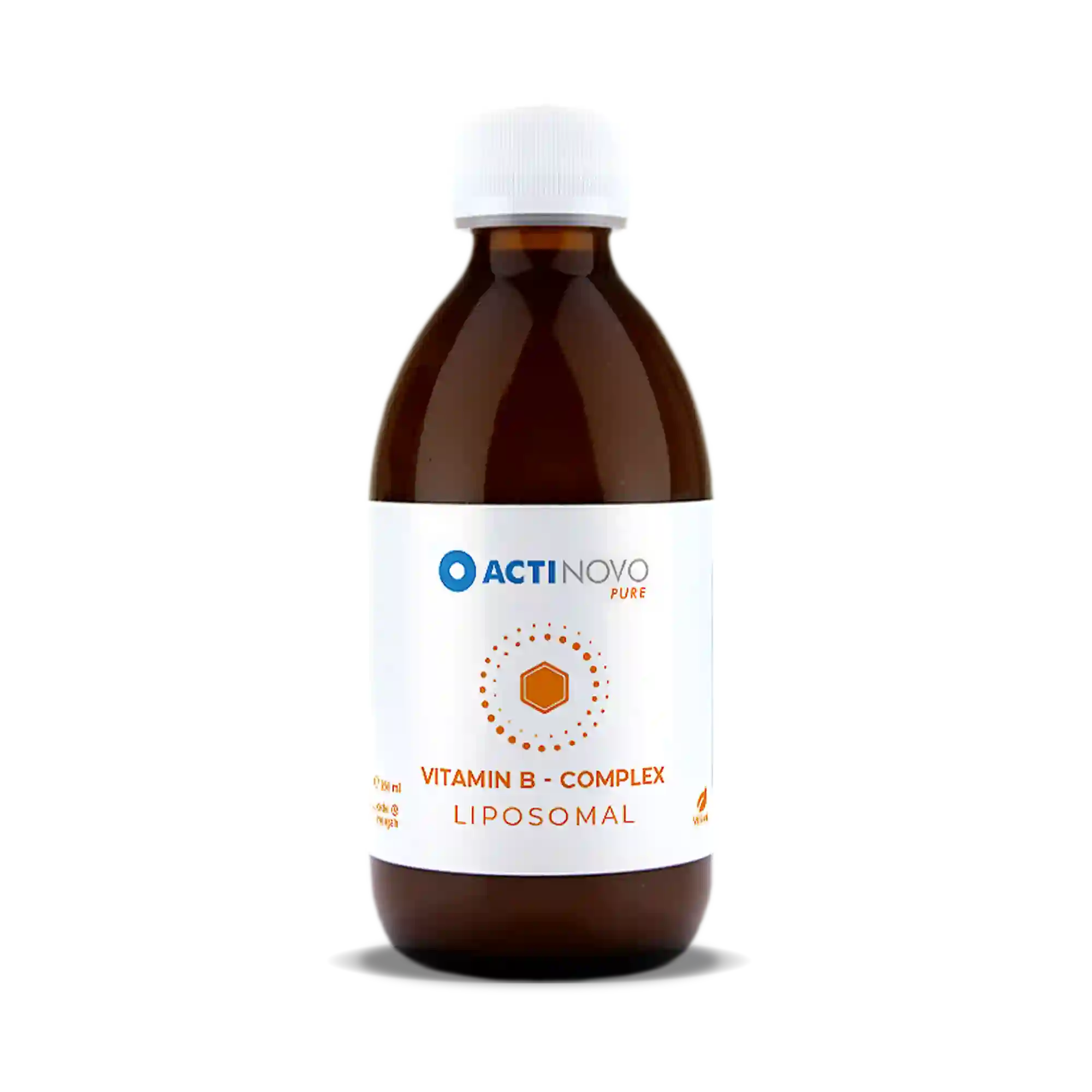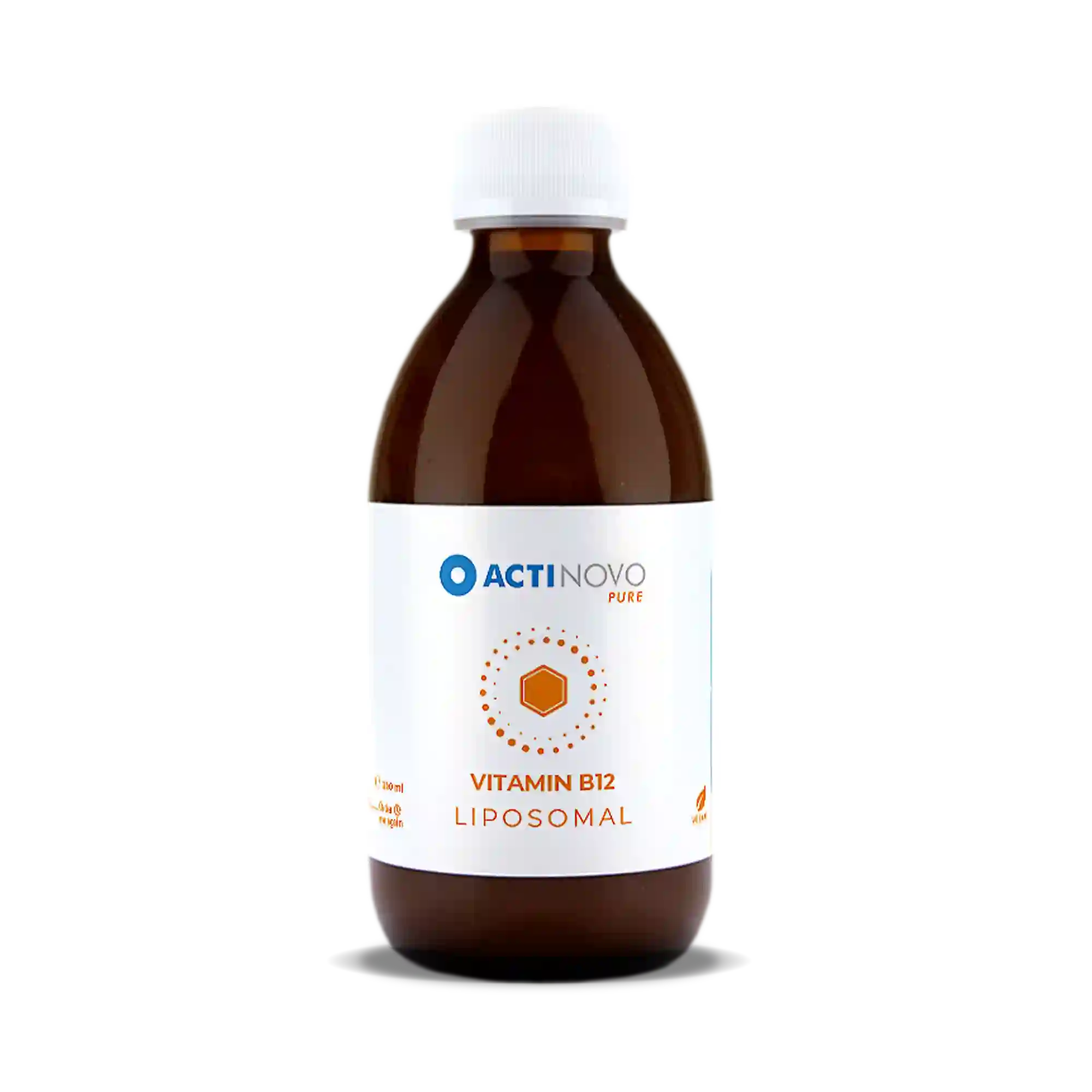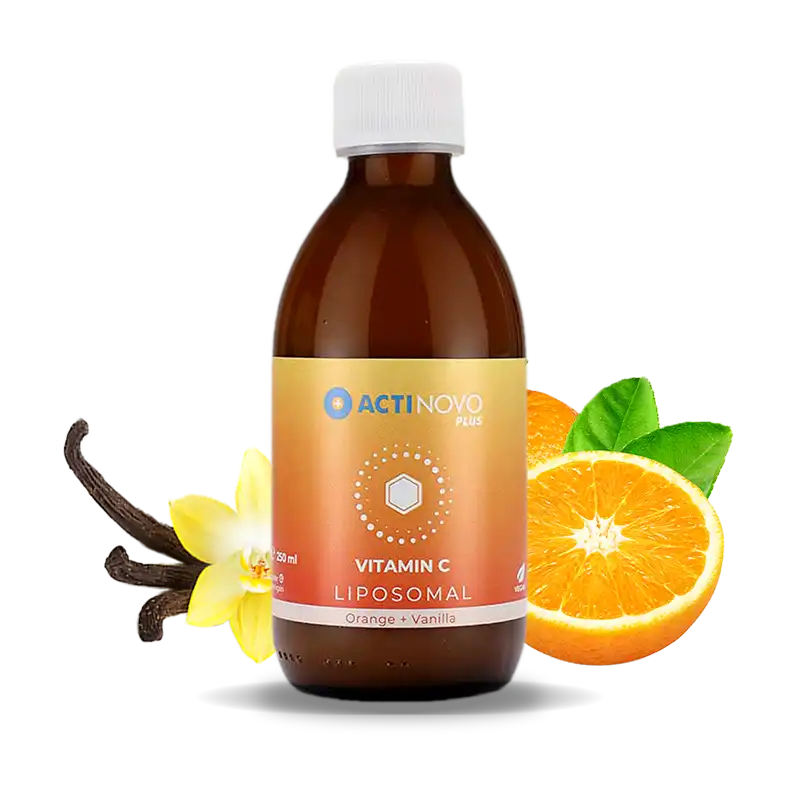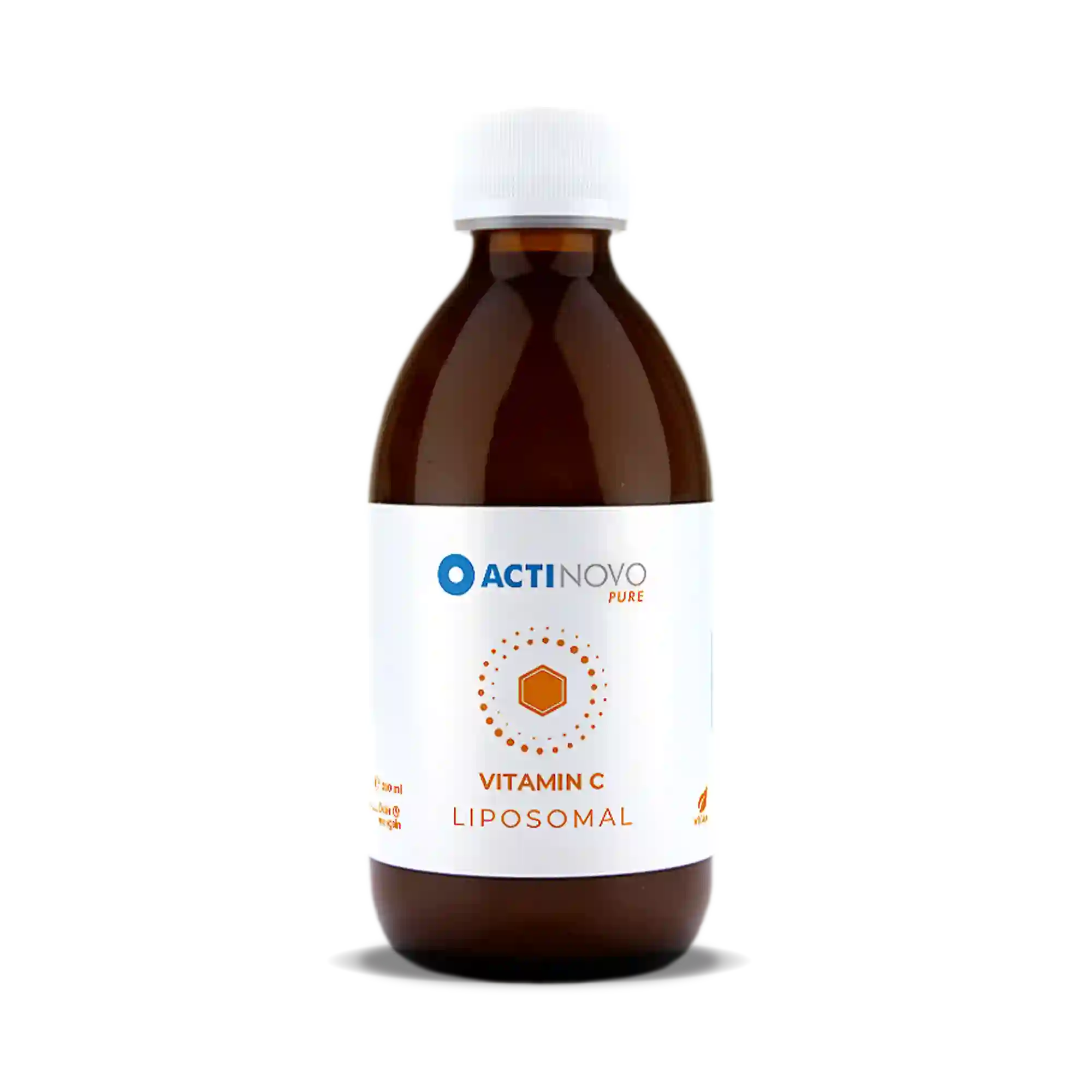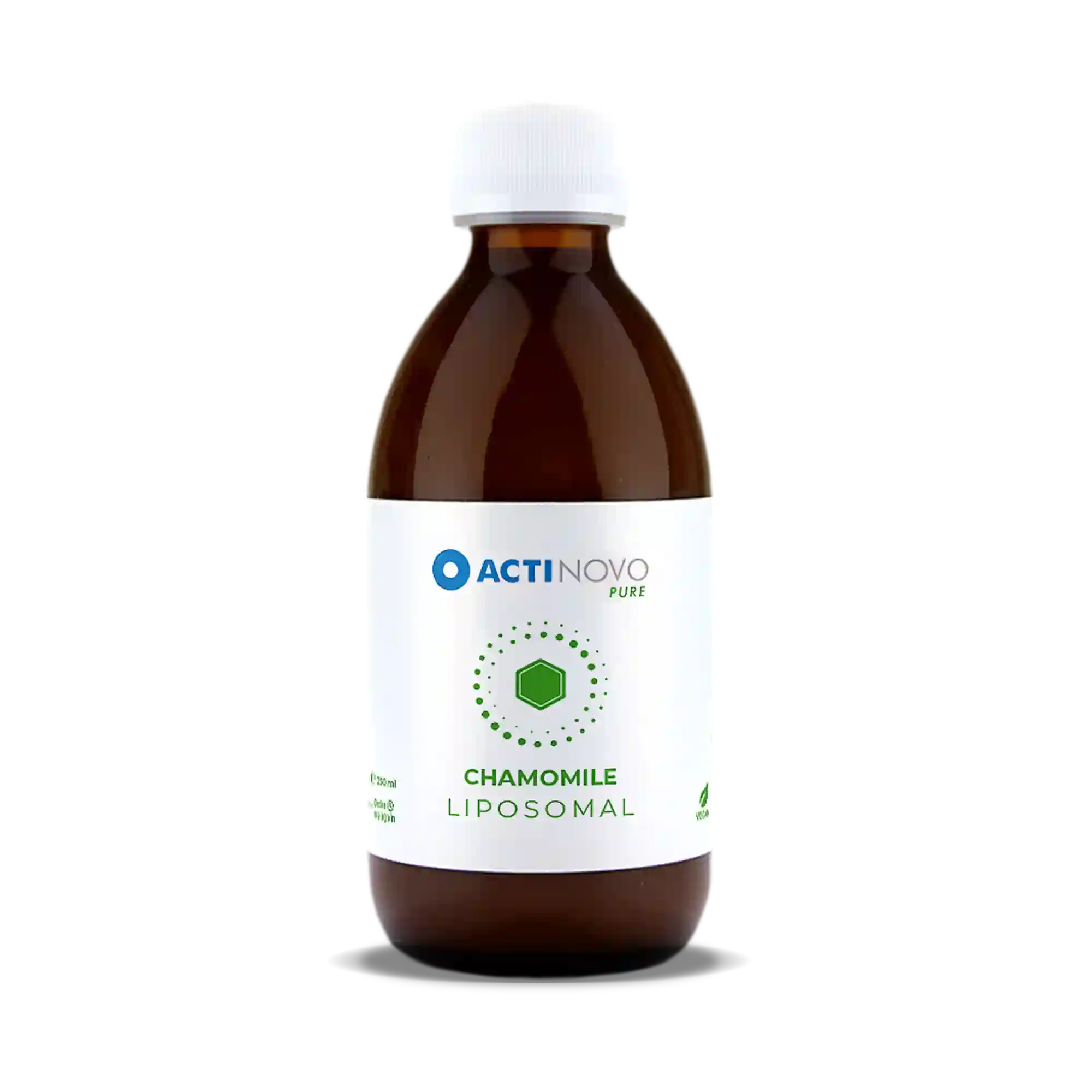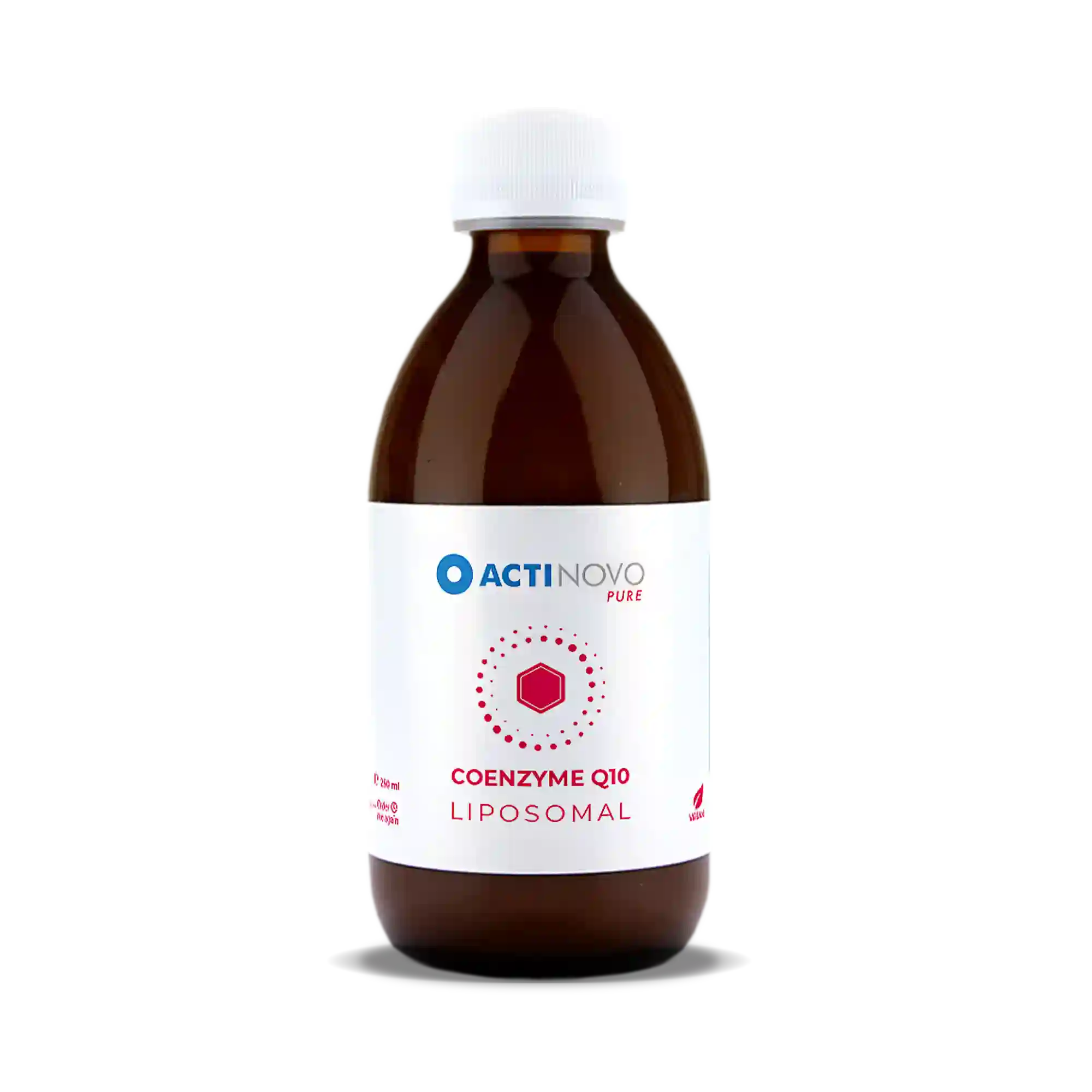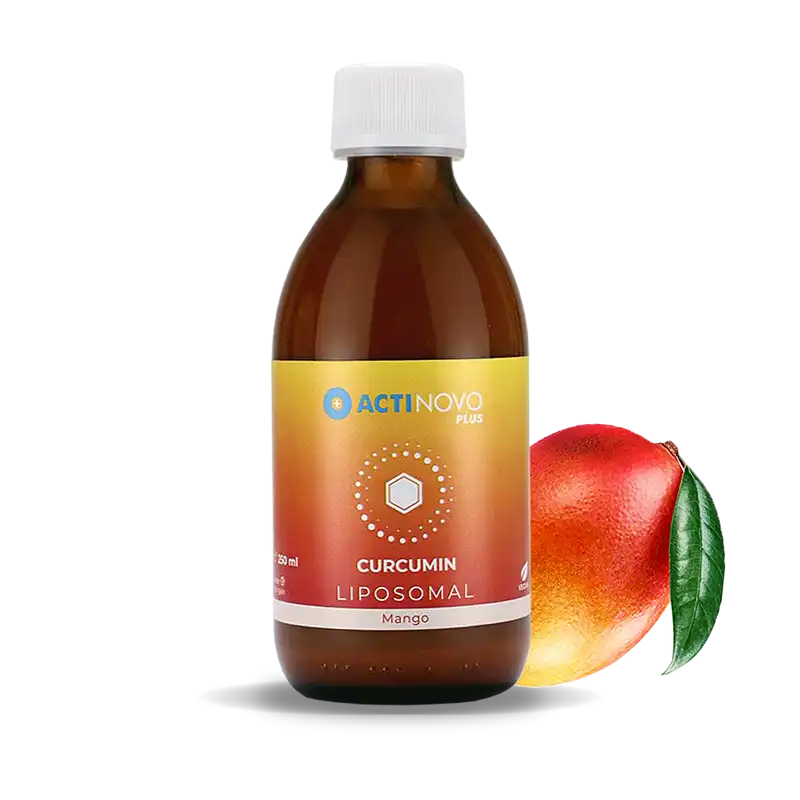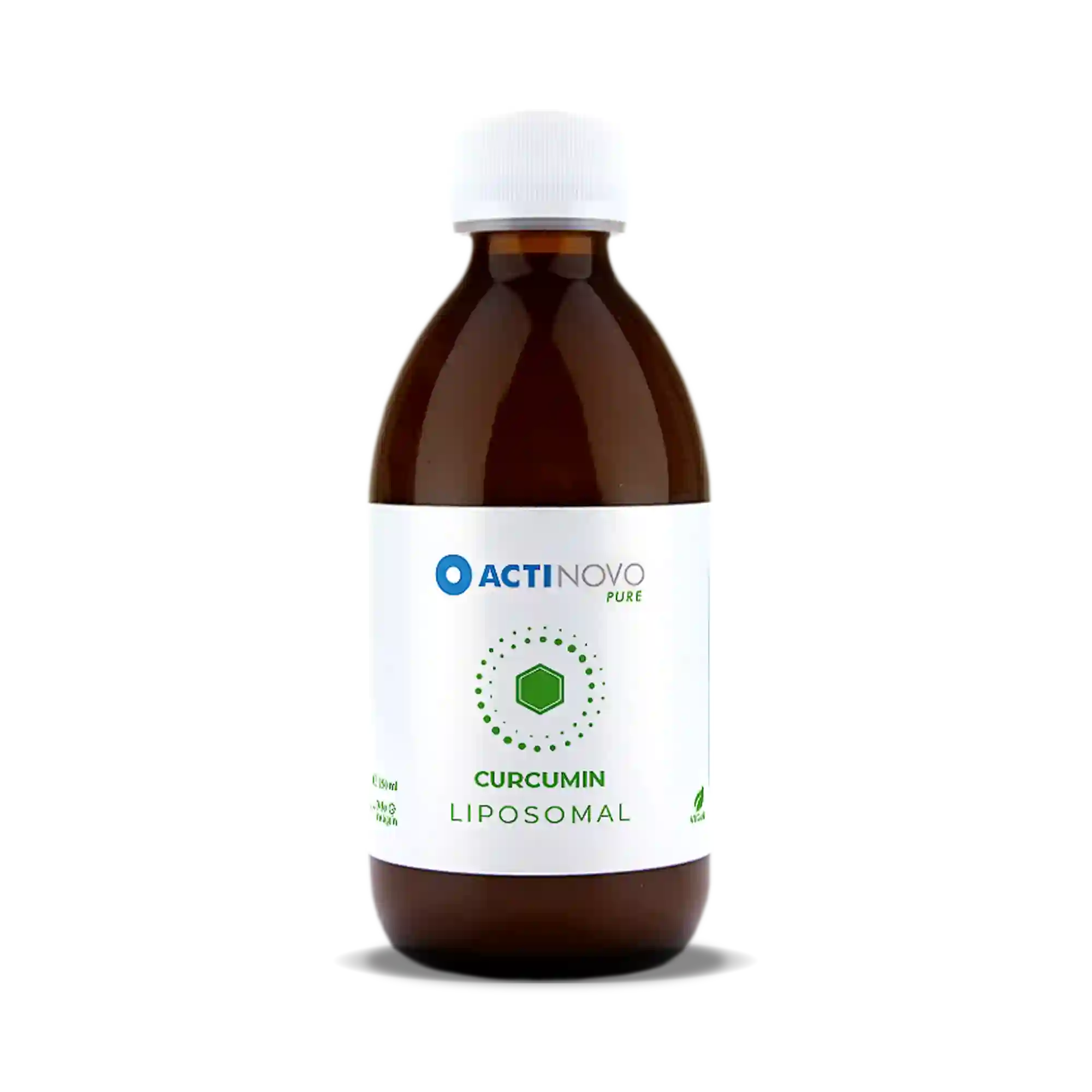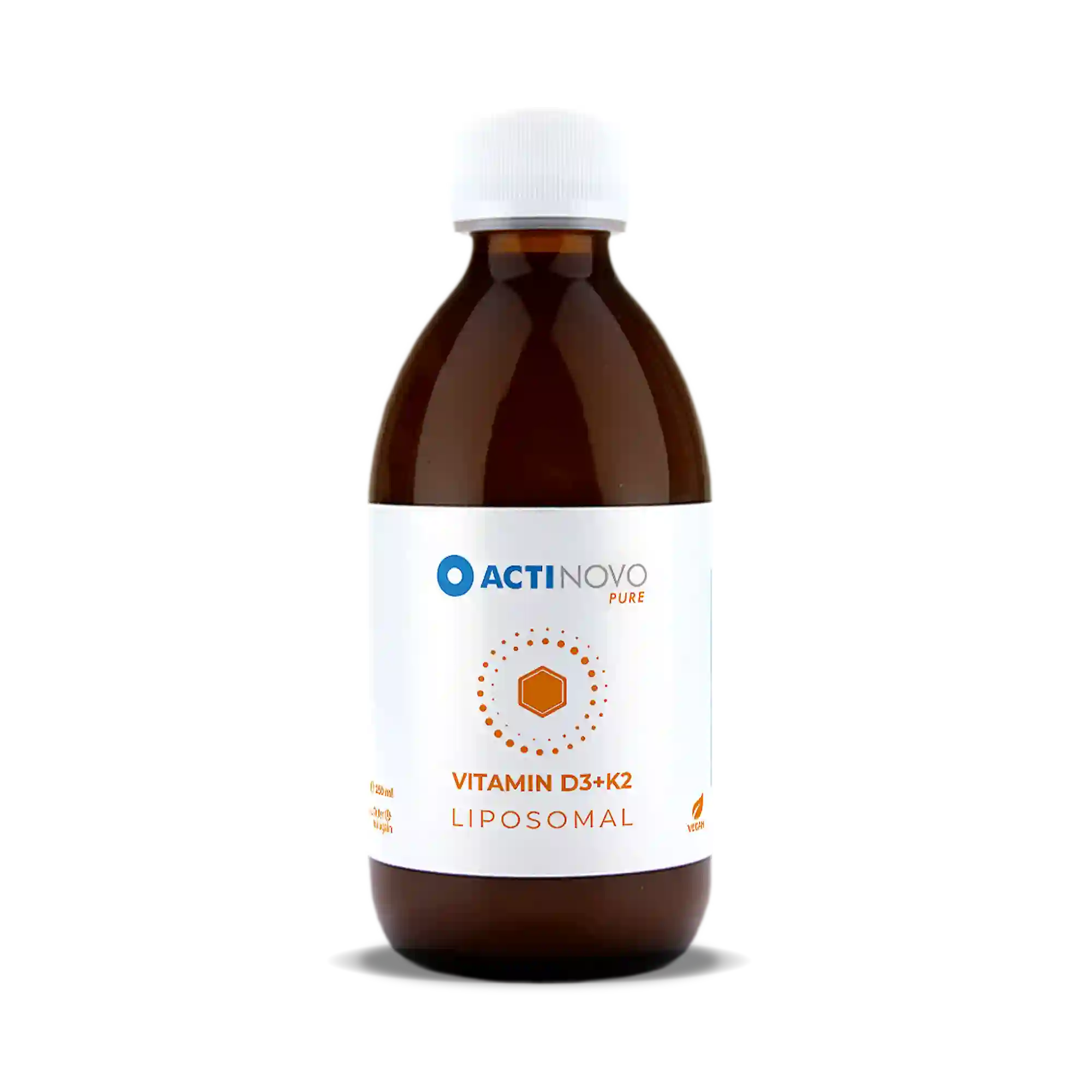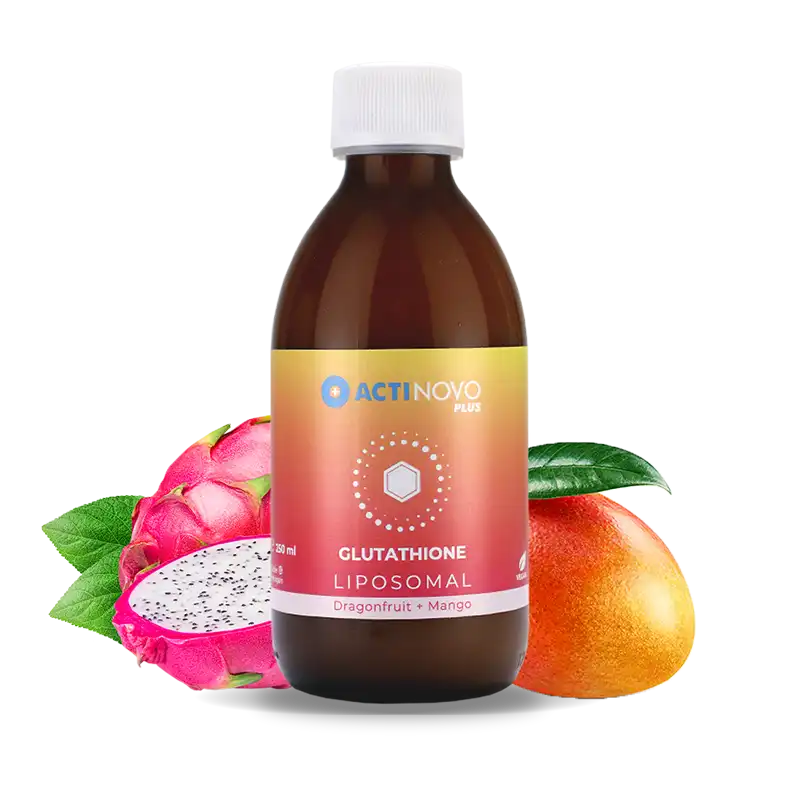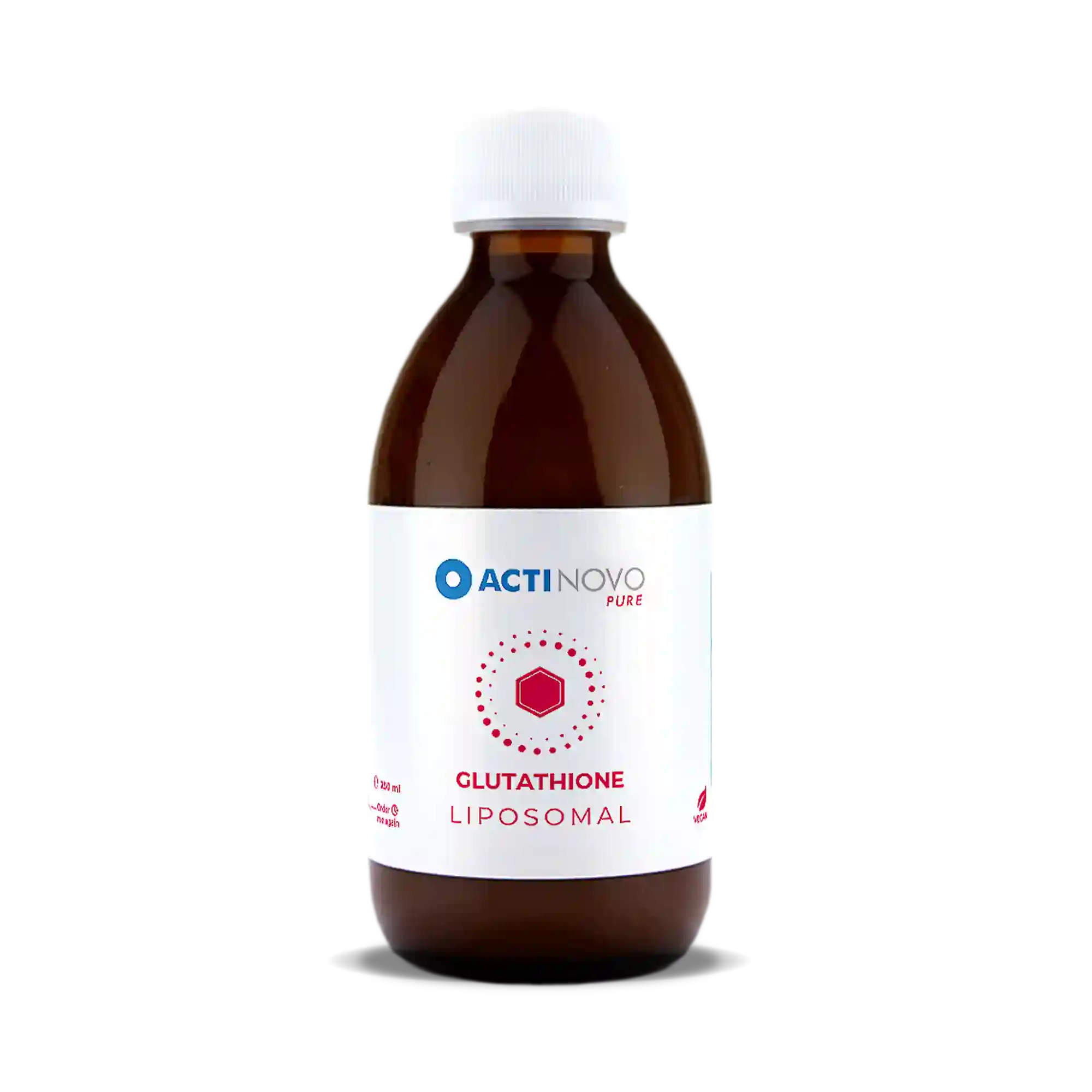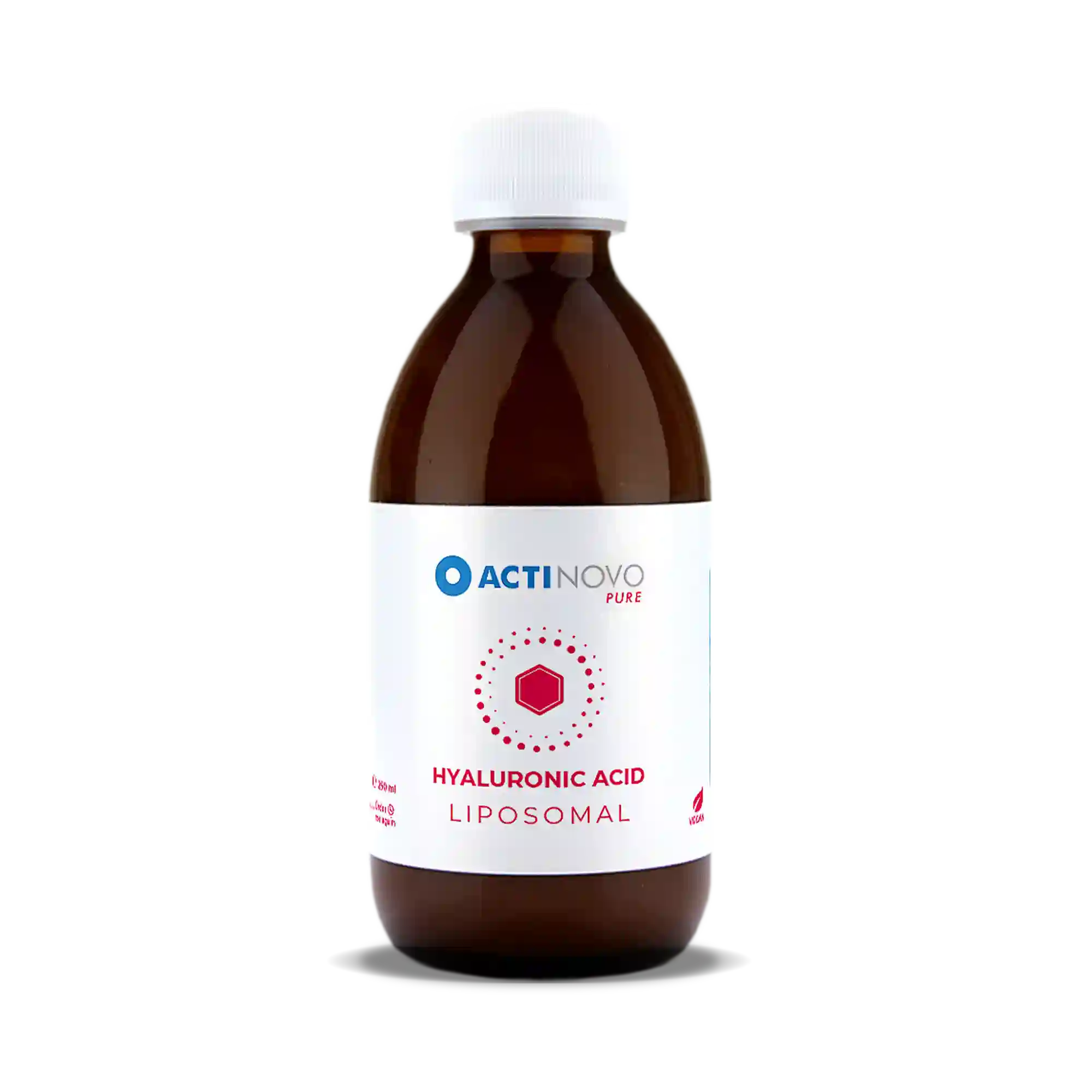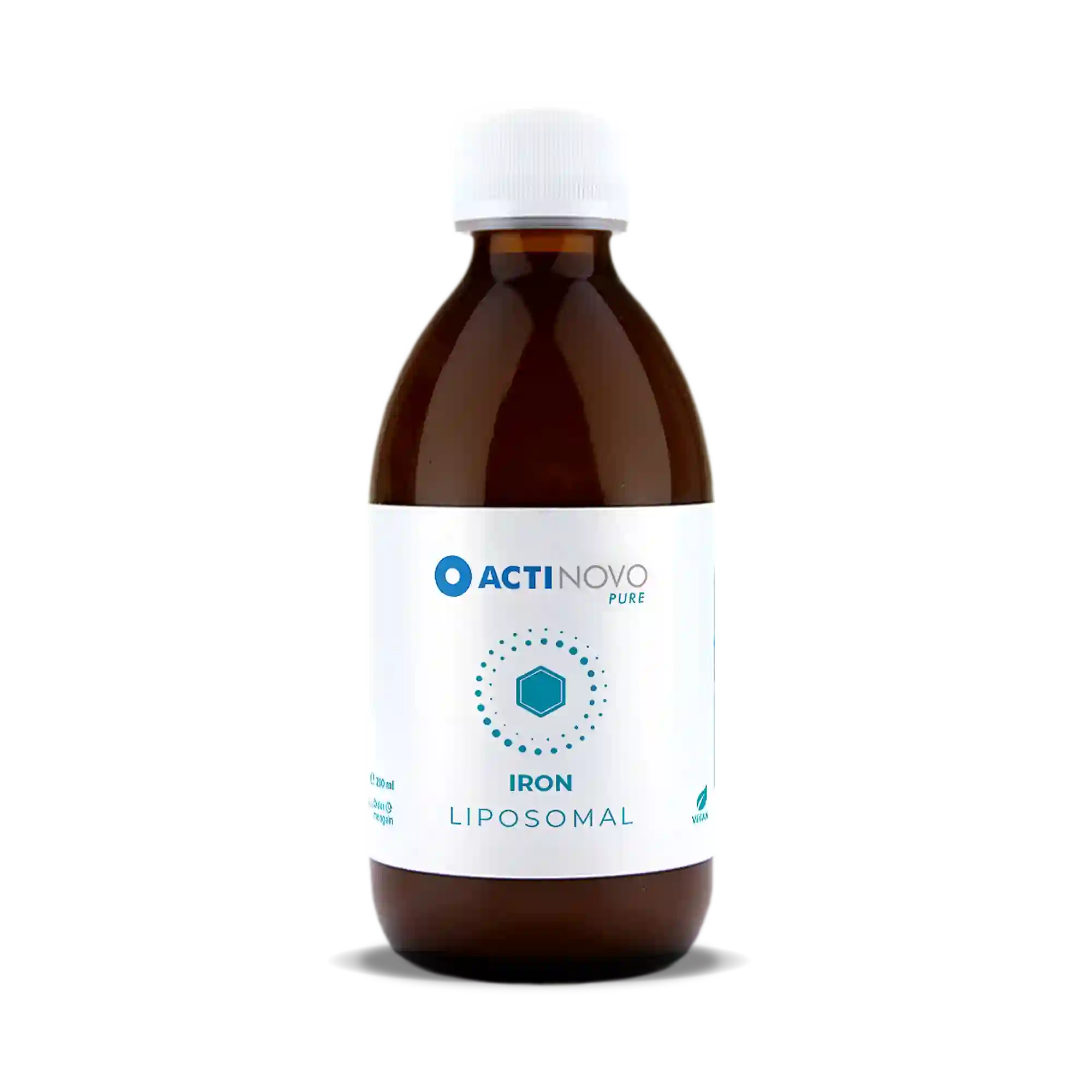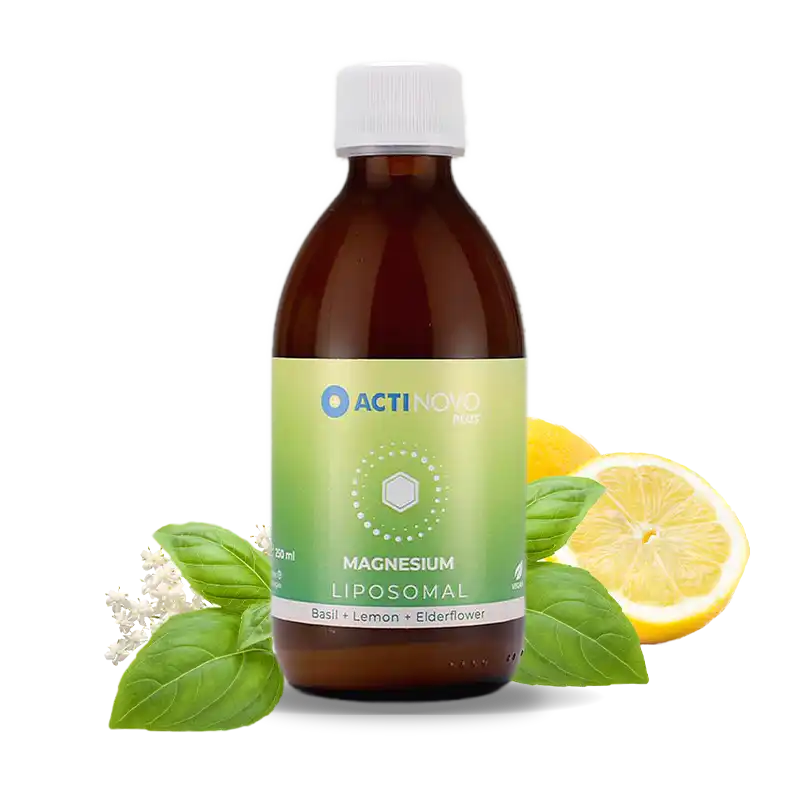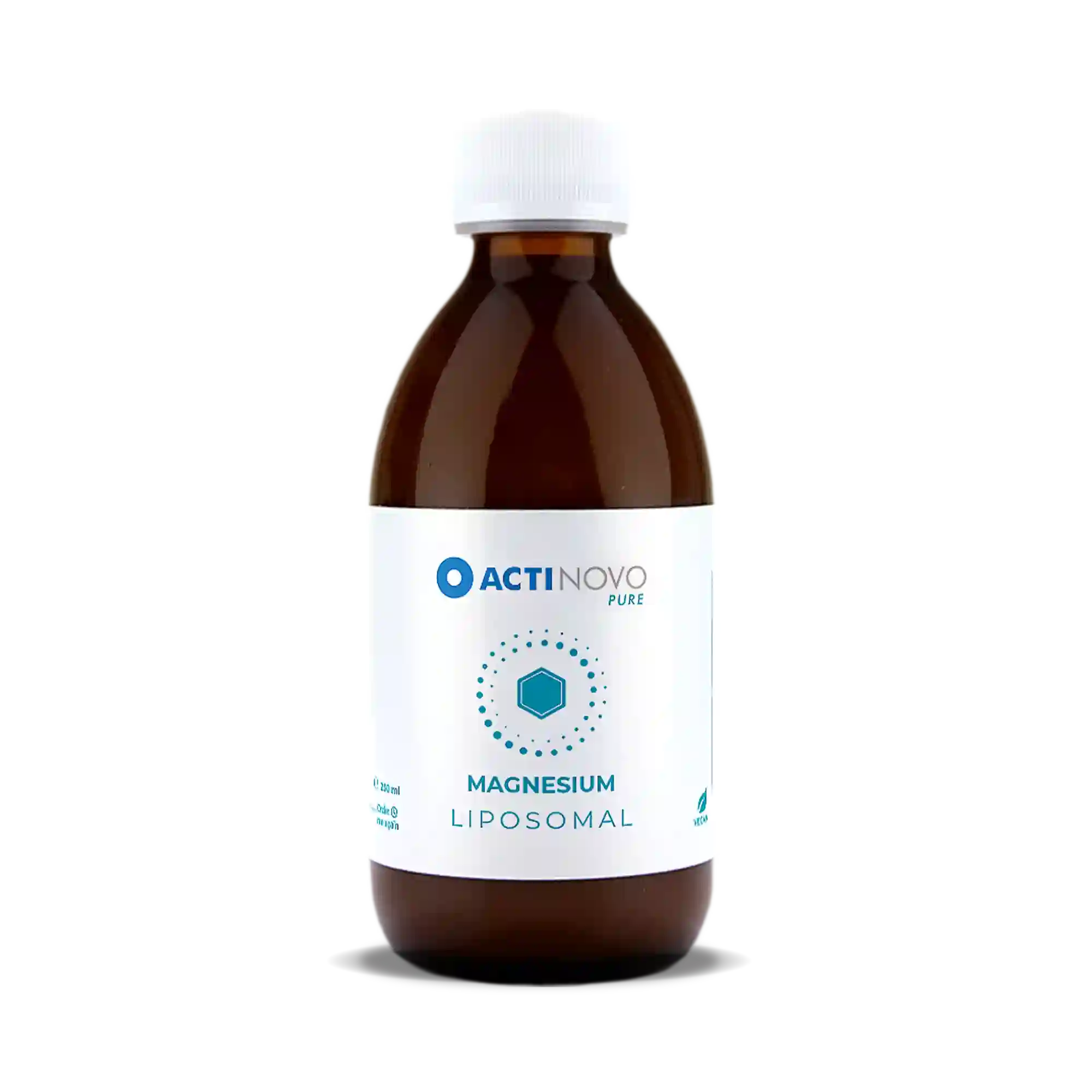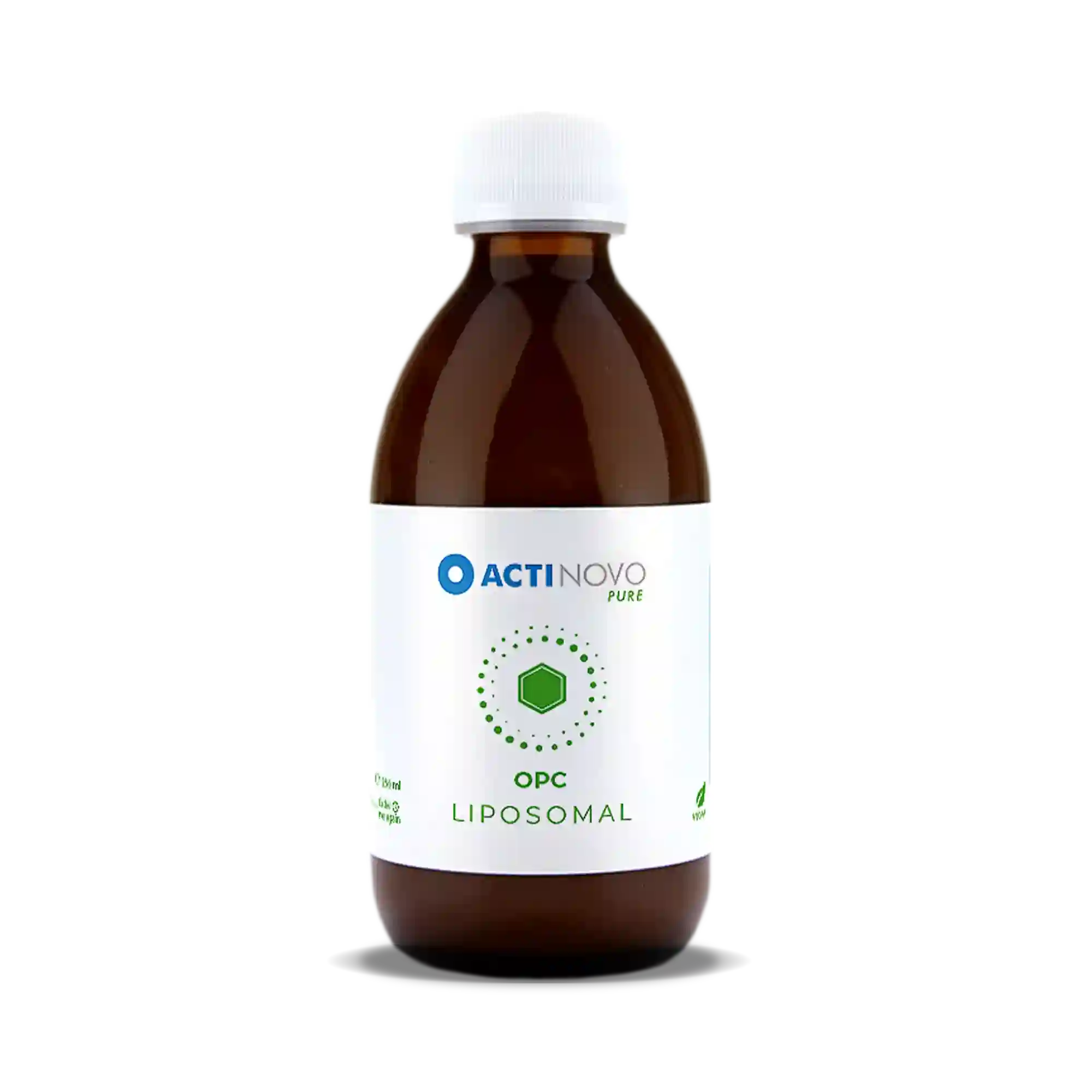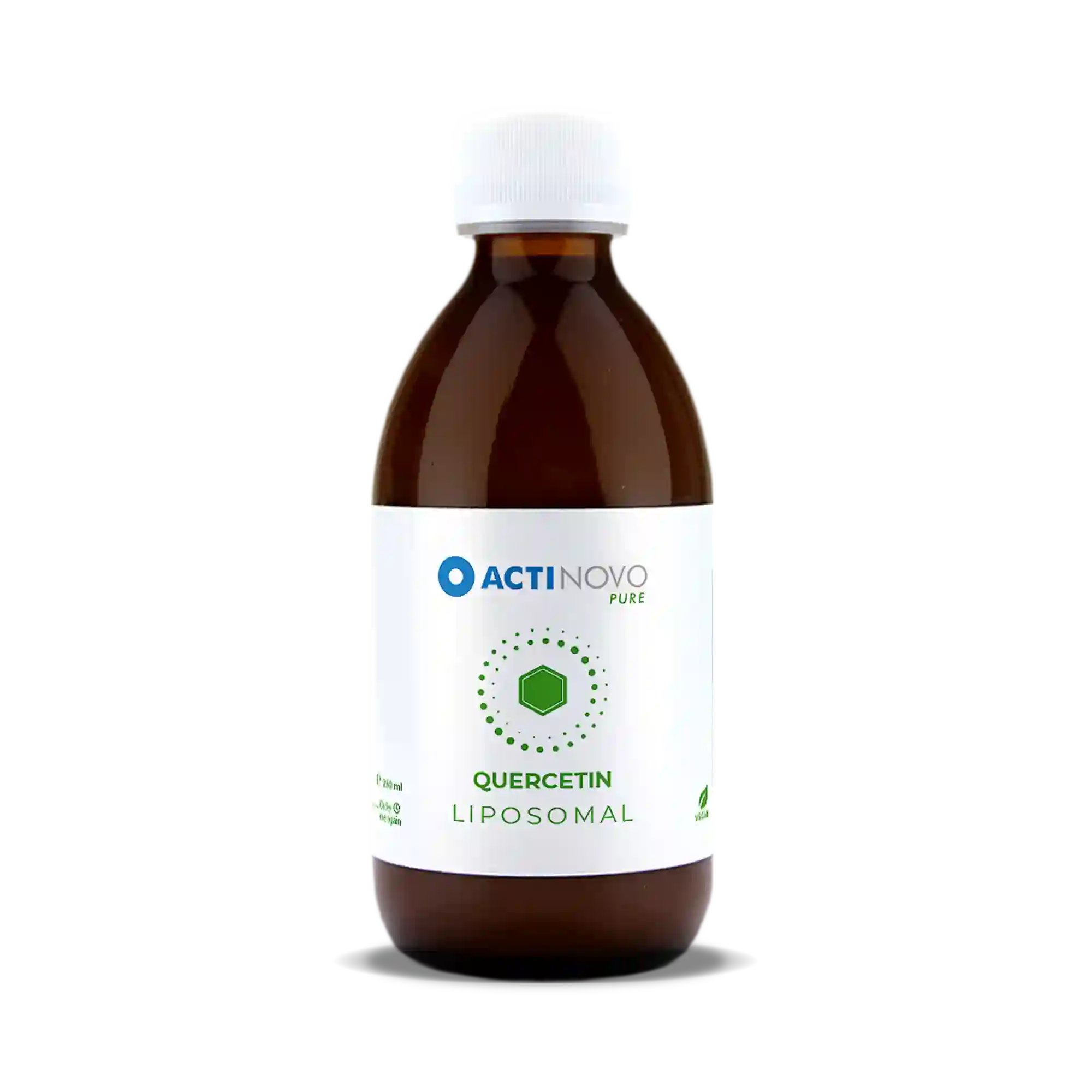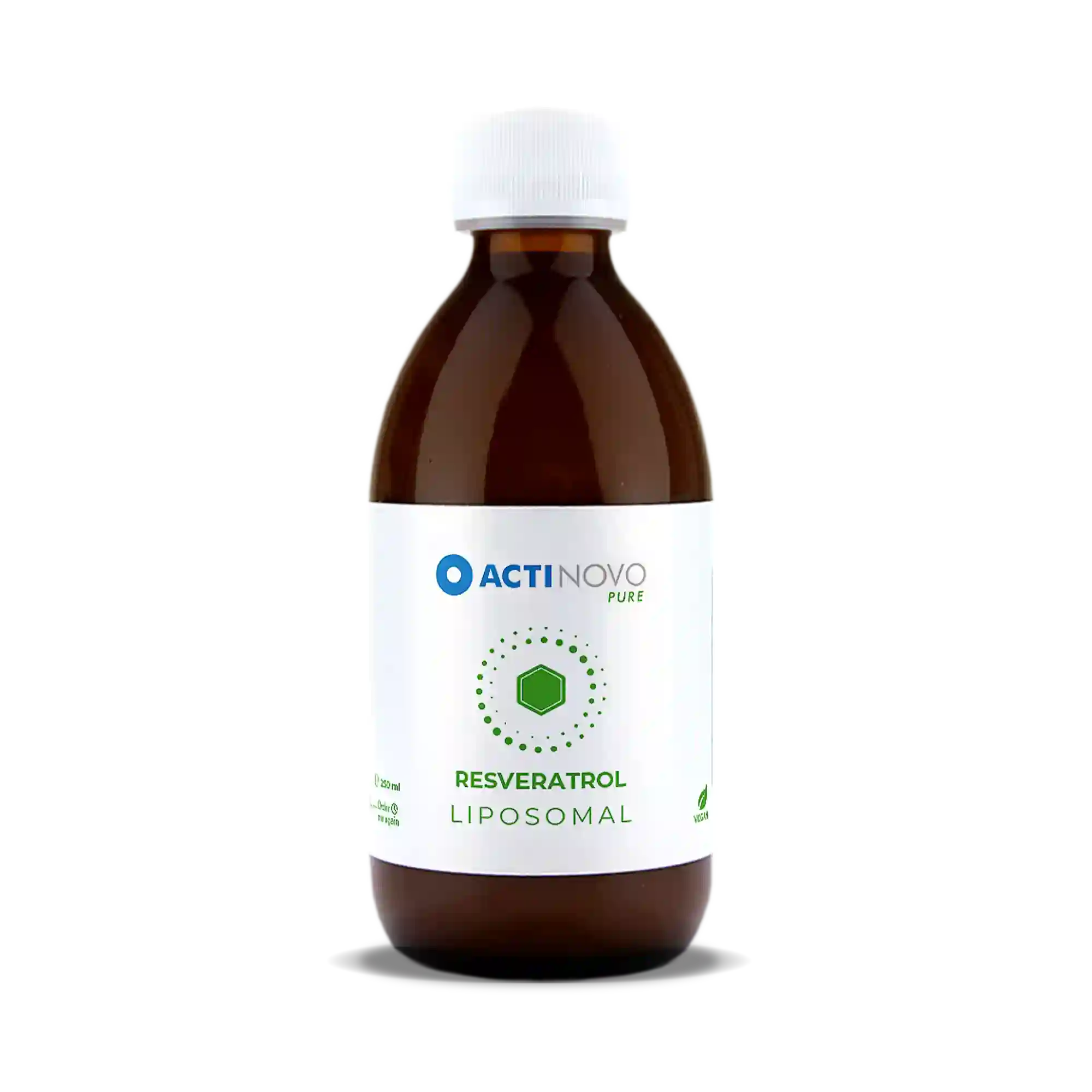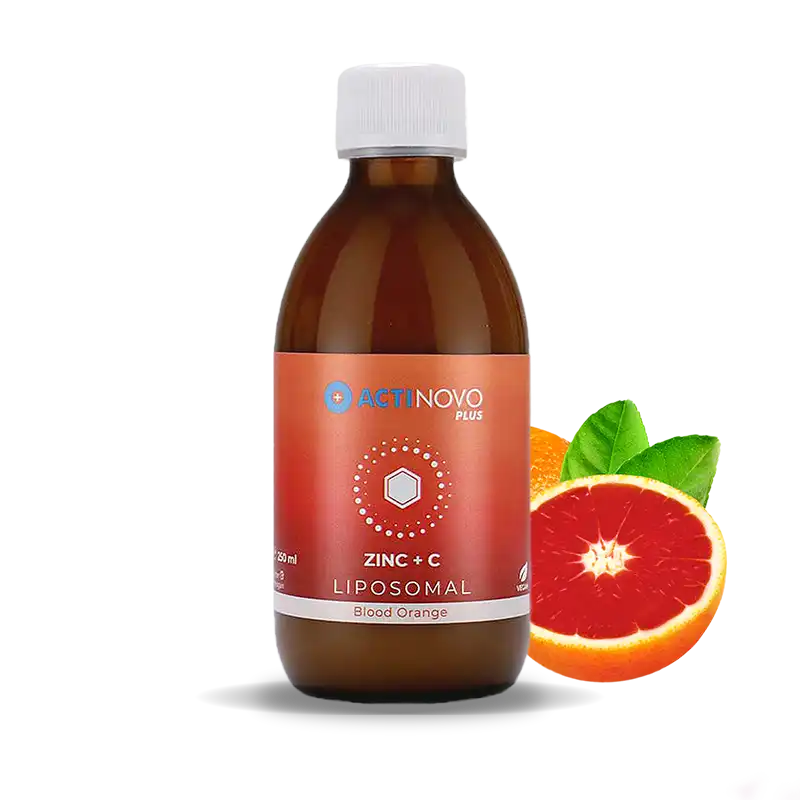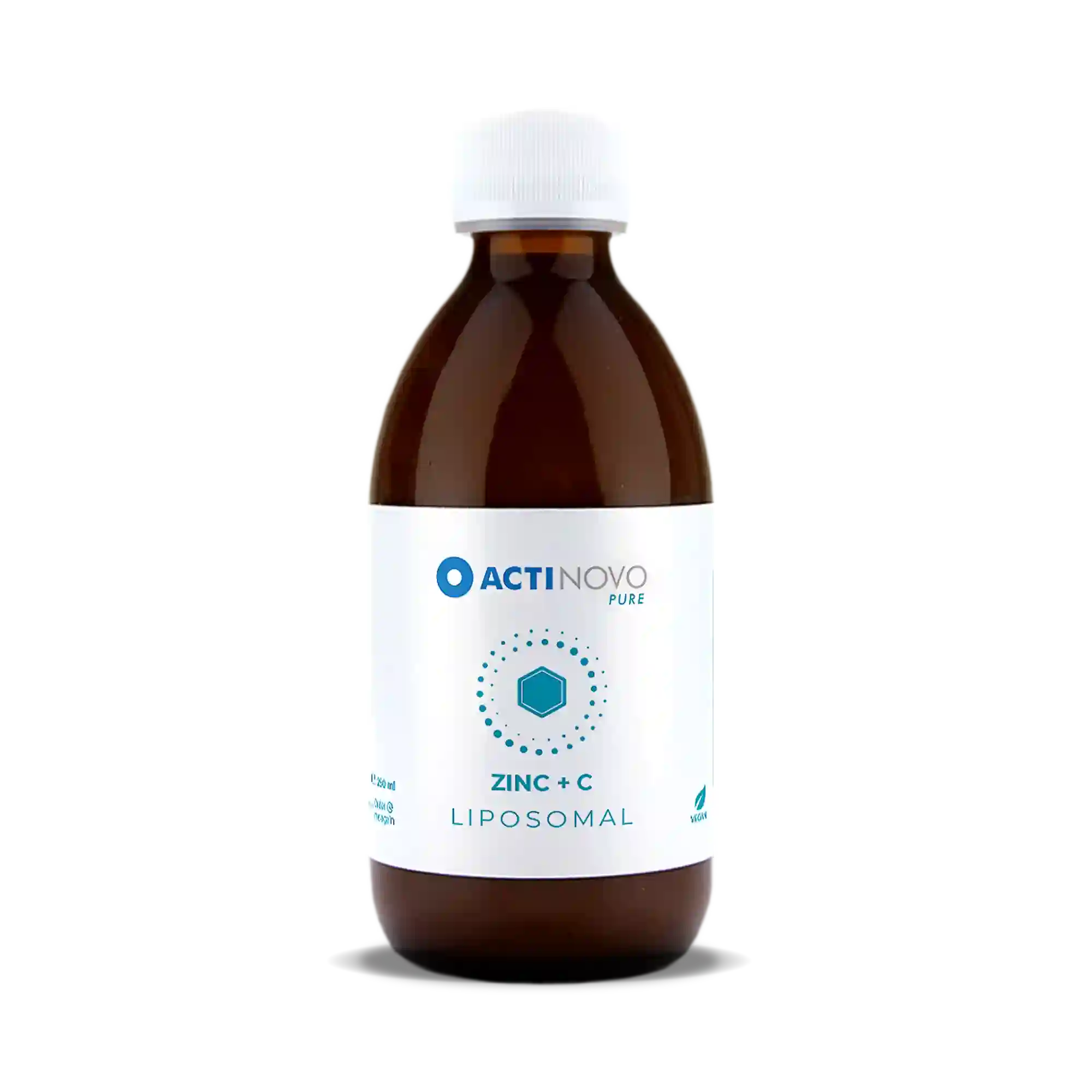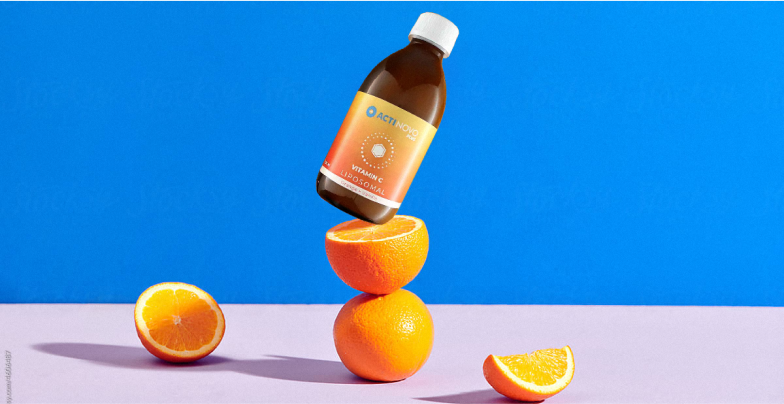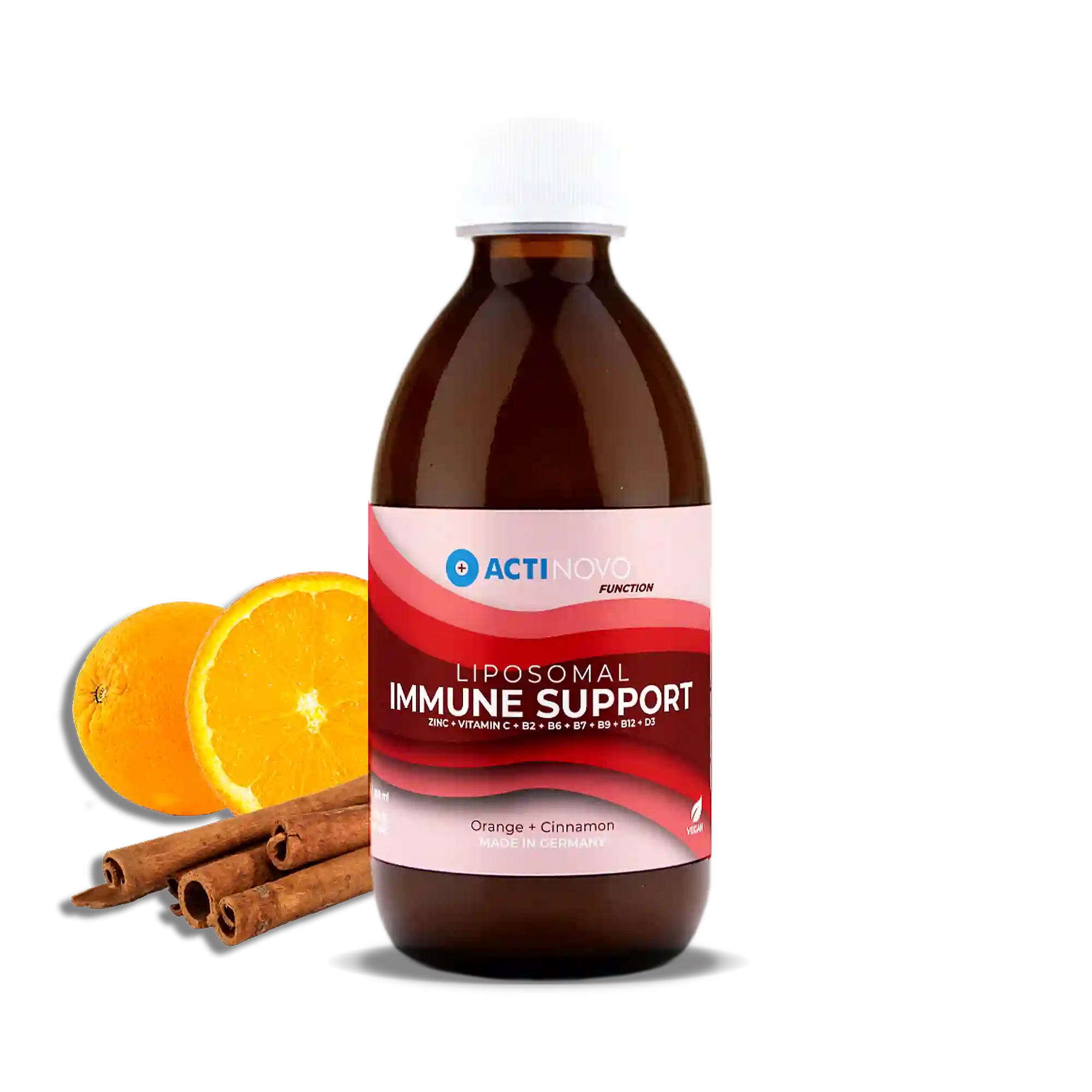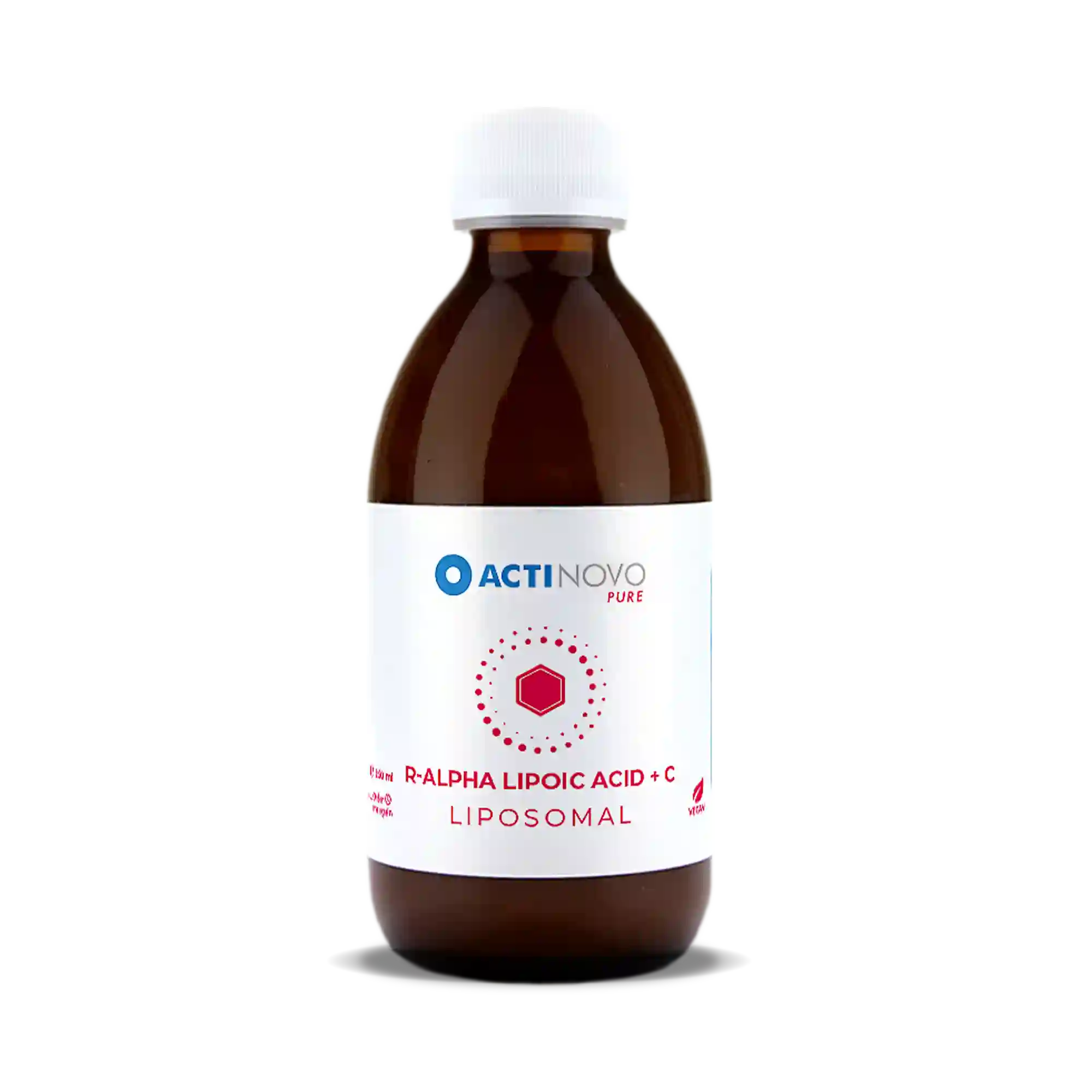
ActiNovo Ingredients from A-Z
The ActiNovo brand offers you a large benefit for your health. At ActiNovo, you will find more than thirty different liquid products. Our product range contains vitamins, minerals, plant substances, and endogenous substances. These liposomal preparations provide you with new energy, help you relax, enhance your natural beauty, and strengthen your bones and muscles. But which product is the right one for your physical needs?
In this blog article, we provide you with the answer and tell you everything about the ingredients contained in our products.
Ashwagandha
Also known as Indian ginseng or sleep berry, Ashwagandha has been one of the most important medicinal plants in Ayurveda for over 3000 years. It is a powerful adaptogen that helps restore balance to the body in times of stress. Numerous studies have indicated that Ashwagandha can lower the stress hormone cortisol.
This plant extract may also support minimizing depressive symptoms and can have a sleep-inducing effect. Ashwagandha powders do not have as high a bioavailability as liposomal products.
Astaxanthin
This compound is a natural reddish-purple pigment found in salmon and seafood. It belongs to the carotenoid group and is structurally similar to Vitamin A, which is found in carrots. Astaxanthin is often referred to as the most powerful antioxidant in the world. Its antioxidant capabilities help minimize free radicals.
Astaxanthin can cross the blood-brain barrier and can exert it's antioxidant effects on the eye. This antioxidant may help improve visual acuity in healthy individuals, protect the eye from blue light from screens, and support healthy skin.
Vitamin B1 (Thiamine)
This B vitamin is particularly important for breakdown of carbohydrates. In many countries, flour and cereals are fortified with thiamine because it is so valuable. Thiamine contributes to normal nervous system function, normal mental function and normal heart function.
Food comparison: Sunflower seeds contain 1.9 mg B1/100g
Vitamin B2 (Riboflavin)
This B vitamin is visually distinguished from the other B vitamins by its yellow fluorescent color. B2 contributes to energy metabolism, nervous system function, reduction of fatigue, and protection of cells from oxidative stress. This important B vitamin also helps maintain vision, skin and red blood cells.
Food comparison: Eggs contain 0.4 mg B2/100g.
Vitamin B3 (Niacin)
Niacin is an important component of protein, fat and carbohydrate metabolism. It is thus partially responsible for the release of energy in our body. B3 contributes to normal functioning of the nervous system, normal mental function, maintenance of normal mucous membranes, and reduction of fatigue and tiredness.
Food comparison:
- Oyster mushrooms contain 10 mg B3/100g
- Grilled chicken contains 6.8 mg/100g
Vitamin B5 (Pantothenic Acid)
This B vitamin is found in small amounts in almost all food. B5 supports normal energy metabolism as well as normal synthesis of steroid hormones, vitamin D, and some neurotransmitters. In addition, vitamin B5 helps reduce fatigue and supports mental performance.
Food comparison: Yeast contains 3.5 mg B5/100g
Vitamin B6 (Pyridoxine)
This B vitamin is particularly important for energy metabolism and the function of the nervous and immune systems. B6 is involved in the formation of red blood cells, participates in the regulation of hormone activity and contributes to the reduction of fatigue. The absorption of vitamin B6 can be greatly reduced in the case of a damaged small intestine or lack of enzymes.
Food comparison:
- Salmon contains 0.98 mg B6/100 g
- Walnut kernels contain 0.87 mg B6/100g
Vitamin B7/ Vitamin H (Biotin)
Biotin is also called the beauty vitamin. Rightly so, because this B vitamin is particularly important for the maintenance of healthy skin, hair, and nails. In addition, biotin is necessary for the functioning of the nervous system and the metabolism of macronutrients.
Food comparison: Wheat bran contains 44 µg B7/100 g
Vitamin B9 (Folic Acid)
Vitamin B9 is especially important during pregnancy. This B vitamin is involved in the growth of maternal tissue and can protect the fetus from brain and spine birth defects. Folic acid contributes to amino acid synthesis, blood formation, cell division, and homocysteine metabolism. B9 is important for our immune system and can help reduce feelings of fatigue.
Food comparison:
- Kale contains 187 µg B9/100 g
- Lamb's lettuce contains 145 µg/100g
Vitamin B12 (Cobalamin)
B12 is almost exclusively found in animal products. Eating a vegan or vegetarian diet may increase the risk of deficiency. B12 is important for the nervous system and mental performance. Intrinsic factor (IF) is an important compound found in the stomach and is essential for the absorption of B12.
People in whom intrinsic factor function is impaired (e.g., by medication or surgery) are particularly at risk of B12 deficiency. Fatigue, pale appearance, and tingling in the arms and legs are an expression of an increased need for B12. Deficiency, called pernicious anemia, is often only detected late, so B12 supplements may be indicated.
Food comparison:
- Beef liver contains 65 µg B12/100g
- Oysters contain 14.5 µg B12/100g
Our Nutrients For Your Vitality
Vitamin C (Ascorbic Acid)
Vitamin C-rich foods:
- Sea buckthorn (450 mg /100g)
- Guava (273 mg /100g)
- Red bell pepper (140 mg /100g)
Chamomile
Coenzyme Q10 (Ubiquinone)
Unfortunately, the body's production of coenzyme Q10 can begin to decline after the age of 20.
Curcumin
Learn more about Curcumin here.
Vitamin D3 (Cholecalciferol)
Vitamin D-rich foods:
- Eel (smoked) 90 µg / 100g
- Porcini mushrooms 3.1 µg / 100g
- Chicken egg 3 µg /100g
Vitamin E (Tocopherol)
This fat-soluble vitamin has strong antioxidant properties. There are several forms, but the most popular form is alpha-tocopherol. Vitamin E is used in some of our products for preservation purposes. ActiNovo products contain only the natural form of vitamin E.
Vitamin E is not used solely for preservation in our products. This vitamin is also used as an important antioxidant that protects cells from oxidative stress.
Foods rich in vitamin E:
- Wheat germ oil 174 mg/ 100g
- Brazil nuts 7,6 mg/ 100g
- Winter asparagus 6 mg/100g
Glutathione
Why you should take glutathione? Here is the answer.
Glycerol
Hyaluronic Acid
Iron
This essential micro nutrient is mainly absorbed through red meat and other animal products. To a lesser extent, iron is present in dark leafy vegetables and other plant products.
Iron is necessary for the formation of red blood cells and helps provide oxygen to our muscles and tissues. Women, vegans, vegetarians, and high performance athletes are most at risk for iron deficiency. Learn here to prevent!
Iron-rich foods:
- Lentils: 8 mg /100 g
- Veal: 7.9 mg / 100 g
- Soybeans: 6.6 mg /100 g
Vitamin K2 (Menaquinone)
Vitamin K2 is essential for bone health and is an important co-factor for vitamin D. Vitamin K is produced by bacteria in our intestines and found in some food. Along with Vitamin D3, Vitamin K2 helps maintain healthy and strong bones. Vitamin K2 helps to ensure that calcium is brought into the bones and prevents calcium from being deposited in organs or blood vessels.
The most effective form of vitamin K2 is the MK7 all-trans form. This is because the trans form is the only form that can be utilized by the body. We use only the MK7 all-trans form in our vitamin D3+K2 products.
Vitamin K-rich foods:
- Kale 817 µg /100g
- Parsley 360-790 µg/100g
- Curd cheese, 40% fat in dry matter 50 µg/100g
Magnesium
This important mineral is involved in over 300 enzymatic reactions. Magnesium is needed for the proper functioning of our nervous system. The micronutrient plays an important role in muscle contraction as well as electrolyte balance. Magnesium is an important cofactor in energy metabolism, and may help with muscle relaxation which can improve sport related muscle pains. Research also indicates that having plenty of magnesium may contribute to restful sleep. More interesting facts about magnesium here.
Magnesium rich foods:
- Wheat bran 480mg/100g
- Sunflower seeds 420 mg/100g
- Figs (dried) 70 mg/100g
OPC
OPC (Oligomeric Proanthocyanidins) is a phytochemical found in the skins, seeds, and rinds of fruits. Grape seed extract is the most common source of OPC in dietary supplements.
It is a very powerful antioxidant that has been shown to have positive effects on our blood vessels and heart.
What is OPC? Find out everything you have to know here.
Quercetin
This phytochemical belongs to the flavonoid group and is naturally yellow in color. Quercetin is found in many fruits and vegetables such as apples and onions. The plant compound is a powerful antioxidant that can scavenge free radicals and reduce oxidative stress.
In large amounts, quercetin can reduce the release of the inflammatory substance histamine. Because of this trait, quercetin is often used during pollen season as a natural alternative to treat allergies.
R-Alpha Lipoic Acid
This compound is found as a coenzyme in the mitochondria of almost all animals and plants. R-alpha lipoic acid plays an important role in energy metabolism in the mitochondria. Alpha lipoic acid is a free radical scavenger and powerful antioxidant.
This substance can even regenerate antioxidants such as vitamin C, vitamin E, coenzyme Q10 and glutathione. Due to its fat- and water-soluble properties, the substance is able to penetrate all areas of the central and peripheral nervous system and cross the blood-brain barrier.
Resveratrol
Resveratrol is found in grapes and red wine. This secondary plant compound belongs to the group of antioxidants known as polyphenols and has various effects on healthy aging.
This powerful antioxidant is especially popular in skin care. Studies suggest resveratrol protects our bodies from oxidative stress and can help reduce fine lines and wrinkles.
Sea Buckthorn Extract
Sea buckthorn is a shrubby plant with orange berries that grows primarily along the coasts of the Baltic and North Seas. Due to its high vitamin C content, it is also called the "lemon of the north". We use the vitamin C-containing sea buckthorn extract as a natural preservative in all our products.
Valerian
This medicinal plant (Valerian / Valeriana) has been used in Europe for centuries. Many people consume valerian primarily for stress relief and as a natural sleep aid. It can help lower stress hormones and increase levels of the calming neurotransmitter GABA. Valerian may be helpful for menopausal women who suffer from hot flashes and sleep disturbances.
Are you looking for a remedy to support your sleep? Then we can recommend our Liposomal Sleep Support with valerian, melatonin, B vitamins and magnesium.
Vitaminoids (Vitamins Produced By The Body)
Vitaminoids are vitamin-like compounds that the body can partially produce on its own. They are similar in function to typical vitamins. Examples of vitaminoids include: coenzyme Q10 and R-alpha lipoic acid. Since the self-synthesis of these vitaminoids decreases significantly with age or certain diseases, it can be useful to take them additionally as dietary supplements.
Water
The human body consists of about 70% water and is the most important factor for the proper functioning of our body. Water is contained in all organs, cells, and body fluids. It serves as a means of transport throughout the body for macronutrients, minerals, and vitamins.
Any of our ActiNovo products can be mixed with water or enjoyed plain.
Zinc
This trace element is involved in over 50 different enzyme reactions in the body. The intake of zinc is particularly important for our immune system, but also for healthy hair, skin, nails, and eyes. The trace element is involved in the metabolism of macronutrients and helps protect the body from oxidative stress. Zinc is often supplemented by competitive athletes because zinc is important for maintaining testosterone levels and protein synthesis. You can find out all about the secret of zinc in our blog article.
Zinc-rich foods:
- Oysters 22mg/100g
- Liver 8.4mg/100g
- Poppy seeds 8,1mg/100g
Balanced Diet = Healthy Body
In a healthy diet, all nutrients such as vitamins, minerals, and trace elements are consumed in sufficient amounts through food. These nutrients support vital functions in our body. For a balanced diet, you should get enough vitamns, minerals and trace elements from your food. Plenty of vegetables, fruit and vegetable or animal protein sources contribute to a balanced diet. It is important to eat as varied and diverse a diet as possible.
However, it is often difficult to meet your nutritional needs through your food intake in order to get the best possible nutrition. In addition, some nutrients cannot be adequately covered by food, such as Vitamin D - especially in winter - or Vitamin B12 in a vegan diet.
Therefore, we make it easier for you with our particularly effective liposomal formulations! Do you have questions about our products, technology or ingredients?

